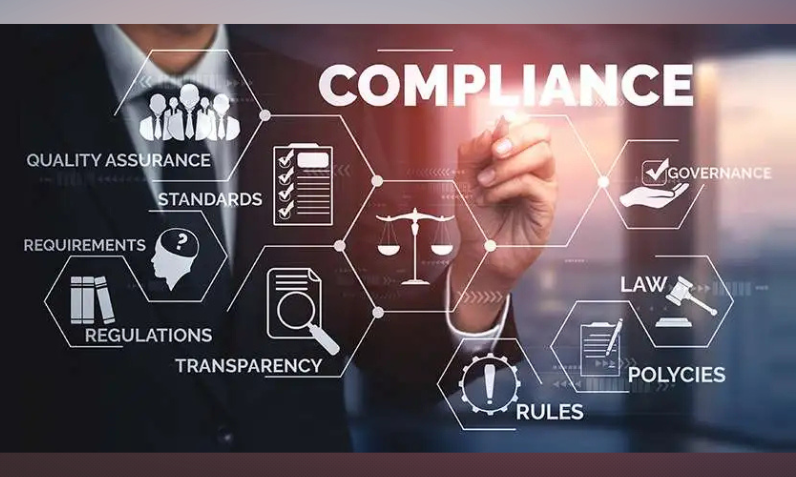The Role of Tax Audits in Ensuring Business Compliance
In today’s evolving regulatory environment, tax audits play a critical role in ensuring business compliance and fostering transparency in financial reporting. Tax audits serve as a systematic examination of an organization’s tax returns, verifying the accuracy of reported income, deductions, and credits. For businesses, including startups, these audits ensure that they adhere to the complex and ever-changing tax laws in their jurisdiction. In India, tax audits are increasingly being used as tools to ensure tax compliance, detect tax fraud, and maintain the integrity of the tax system.
With the implementation of new tax regulations following the 2024 budget session, tax audits have become even more essential for businesses, particularly startups, which may not yet have established mature tax planning systems. This article will explore the role of tax audits in business compliance, analyze the latest tax regulations, and offer actionable insights for entrepreneurs on how to navigate tax audits effectively.
What is a Tax Audit?
A tax audit is a detailed examination of a taxpayer’s financial records and tax returns to ensure the information provided to the tax authorities is accurate and in accordance with the law. In India, under Section 44AB of the Income Tax Act, businesses and professionals are required to conduct tax audits if their turnover, sales, or gross receipts exceed specific thresholds.
The primary purpose of a tax audit is to ensure that businesses and individuals comply with tax regulations. It helps tax authorities detect discrepancies, evasion attempts, or inaccuracies in tax filings. Additionally, tax audits offer an opportunity for businesses to assess their internal financial systems and ensure they meet legal requirements.
Importance of Tax Audits for Businesses
Tax audits are crucial for several reasons:
-
- Ensuring Legal Compliance: Tax audits help ensure that businesses comply with the prevailing tax laws, minimizing the risk of penalties, interest, or legal consequences due to non-compliance. Given the intricate and frequently updated tax regulations, especially for startups, ensuring full compliance is vital to avoid disputes with tax authorities.
-
- Detecting Errors and Fraud: Audits provide an opportunity to identify errors, whether intentional or accidental, in tax filings. Early detection through a tax audit allows businesses to correct these errors before they attract hefty penalties or damage the company’s reputation.
-
- Enhancing Transparency and Credibility: Businesses that undergo regular tax audits are seen as more credible by investors, lenders, and stakeholders. Audits demonstrate a commitment to maintaining accurate records and adhering to legal obligations, enhancing the company’s transparency.
-
- Tax Planning Opportunities: A tax audit gives businesses insights into their financial management and tax planning strategies. Companies can identify inefficiencies, improve processes, and capitalize on potential tax-saving opportunities. This is particularly beneficial for startups and small businesses that may not have dedicated tax professionals on staff.
Latest Tax Regulations Impacting Startups: Insights from the 2024 Budget
The 2024 budget session introduced several significant changes to the tax landscape, with a particular focus on startups. The government continues to view startups as drivers of economic growth and innovation, and the latest budget introduced reforms aimed at supporting their growth while ensuring they comply with tax obligations.
1. Expansion of Presumptive Taxation Schemes
One of the most important updates in the 2024 budget for startups is the expansion of the presumptive taxation scheme under Section 44AD. Presumptive taxation allows eligible taxpayers to declare income at a fixed percentage of their total turnover, simplifying tax compliance for smaller businesses and startups. This scheme has now been extended to businesses with turnover up to ₹5 crores, up from the previous threshold of ₹2 crores.
For businesses opting into presumptive taxation, tax audits are not mandatory. However, this relief comes with a caveat — businesses that declare income lower than the presumptive rate are still subject to audits, highlighting the importance of ensuring accurate records and transparent operations.
2. New Rules for Angel Tax
The Angel Tax provision, which was reintroduced in the 2024 budget, has been a major concern for startups. This tax is imposed on the capital raised by startups through the issuance of shares at a premium to investors. Startups need to ensure that the valuation and pricing of shares meet regulatory standards, as deviations can trigger tax audits.
Startups receiving investment from foreign investors or venture capitalists may be exempt from Angel Tax if they fulfill the eligibility criteria. Nevertheless, startups must be prepared for tax audits if their investment structures or valuations raise questions.
3. Extension of Tax Holidays for Startups
The budget also extended the tax holiday for eligible startups under Section 80-IAC. This provides startups with a 100% tax exemption on profits for three out of the first ten years of their existence. While this is a significant incentive for startups, it increases scrutiny by tax authorities to ensure that businesses claiming the exemption meet all eligibility requirements. Tax audits are likely to focus on verifying that businesses qualify for this relief and that profits are calculated correctly.
The Tax Audit Process in India
A tax audit in India involves a detailed examination of the books of accounts and other financial statements of the taxpayer. Here’s how the process generally unfolds:
1. Appointment of a Chartered Accountant (CA)
For businesses subject to a tax audit, the audit must be conducted by a qualified Chartered Accountant (CA). The CA is responsible for verifying the accuracy of the financial statements and tax returns, ensuring they comply with the tax laws.
2. Scope of the Audit
During the audit, the CA will review various aspects of the business’s financial operations, including:
-
- Income and Expenses: The auditor will verify the accuracy of income declarations and the legitimacy of expenses claimed as deductions.
-
- GST Compliance: Businesses must demonstrate that they have correctly calculated and paid their Goods and Services Tax (GST) liabilities. Any discrepancies can lead to penalties.
-
- Documentation: The auditor will ensure that the business has maintained proper documentation, including invoices, bank statements, and tax records, as required by law.
-
- TDS and Advance Tax: The audit will also cover the company’s compliance with withholding tax (TDS) and advance tax payments. Errors in TDS calculations can result in interest and penalties.
3. Audit Report Submission
After completing the audit, the CA prepares an audit report in Form 3CA/3CB and Form 3CD, which are submitted to the Income Tax Department. The report includes detailed observations on the financial health of the business, highlighting any discrepancies, non-compliance, or areas of concern.
Key Areas of Focus in Tax Audits for Startups
Startups often face unique challenges in tax audits due to their rapid growth, changing business models, and innovative financing structures. The following areas are commonly scrutinized during audits of startups:
1. Revenue Recognition
Startups, especially those in the tech or service sectors, may have complex revenue models. The tax auditor will ensure that revenue recognition is in line with applicable accounting standards and tax laws. Incorrect revenue recognition can lead to inflated profits, affecting tax liabilities.
2. Deduction of Expenses
Many startups incur significant expenses during their initial years, from research and development (R&D) to marketing and employee compensation. The tax audit will verify that these expenses are legitimate and directly related to the business. Personal expenses claimed as business deductions are a red flag for auditors.
3. Employee Stock Options (ESOPs)
Startups often use ESOPs as a tool to attract and retain talent. The valuation of ESOPs and the tax treatment of the benefits received by employees can be complicated, and any miscalculations can lead to tax issues. Auditors will examine whether startups have correctly accounted for ESOPs in their financial records.
4. Transfer Pricing
Startups with international operations or subsidiaries must comply with transfer pricing regulations. This involves ensuring that transactions between related entities are conducted at arm’s length. Transfer pricing audits are common in startups that receive foreign investment or operate in multiple jurisdictions.
Actionable Insights for Entrepreneurs: Preparing for a Tax Audit
For startups and entrepreneurs, navigating a tax audit can be a daunting task. However, with proper preparation and awareness of common pitfalls, businesses can manage audits effectively. Here are some actionable insights to help startups stay compliant and audit-ready:
1. Maintain Detailed Records
Keeping accurate and detailed records is critical to ensuring smooth tax audits. Businesses should maintain comprehensive documentation of all transactions, expenses, investments, and tax filings. Properly organized financial records help auditors quickly verify compliance and minimize the risk of penalties.
2. Understand Your Tax Obligations
Entrepreneurs should stay informed about their tax obligations, including income tax, GST, TDS, and other applicable taxes. Regularly consulting with tax professionals ensures that the business is up to date with the latest regulations and compliant with filing requirements.
3. Leverage Technology for Compliance
Digital tools and software solutions can help startups manage their financial records, tax filings, and compliance obligations more efficiently. Automated tax filing platforms can reduce the likelihood of errors and ensure timely submissions, while data analytics tools can identify potential audit risks before they escalate.
4. Seek Professional Guidance
Tax audits can be complex, especially for startups with evolving business models. Working with a qualified tax advisor or CA ensures that the business is well-prepared for audits and compliant with the latest tax regulations. Professional guidance is particularly valuable for navigating areas such as transfer pricing, ESOPs, and international tax compliance.
Conclusion
Tax audits play an indispensable role in ensuring business compliance with tax laws. They not only help detect discrepancies and fraud but also offer valuable insights into improving financial management and tax planning strategies. For startups, tax audits can be challenging, but with the right preparation, they provide an opportunity to enhance transparency, credibility, and operational efficiency.








